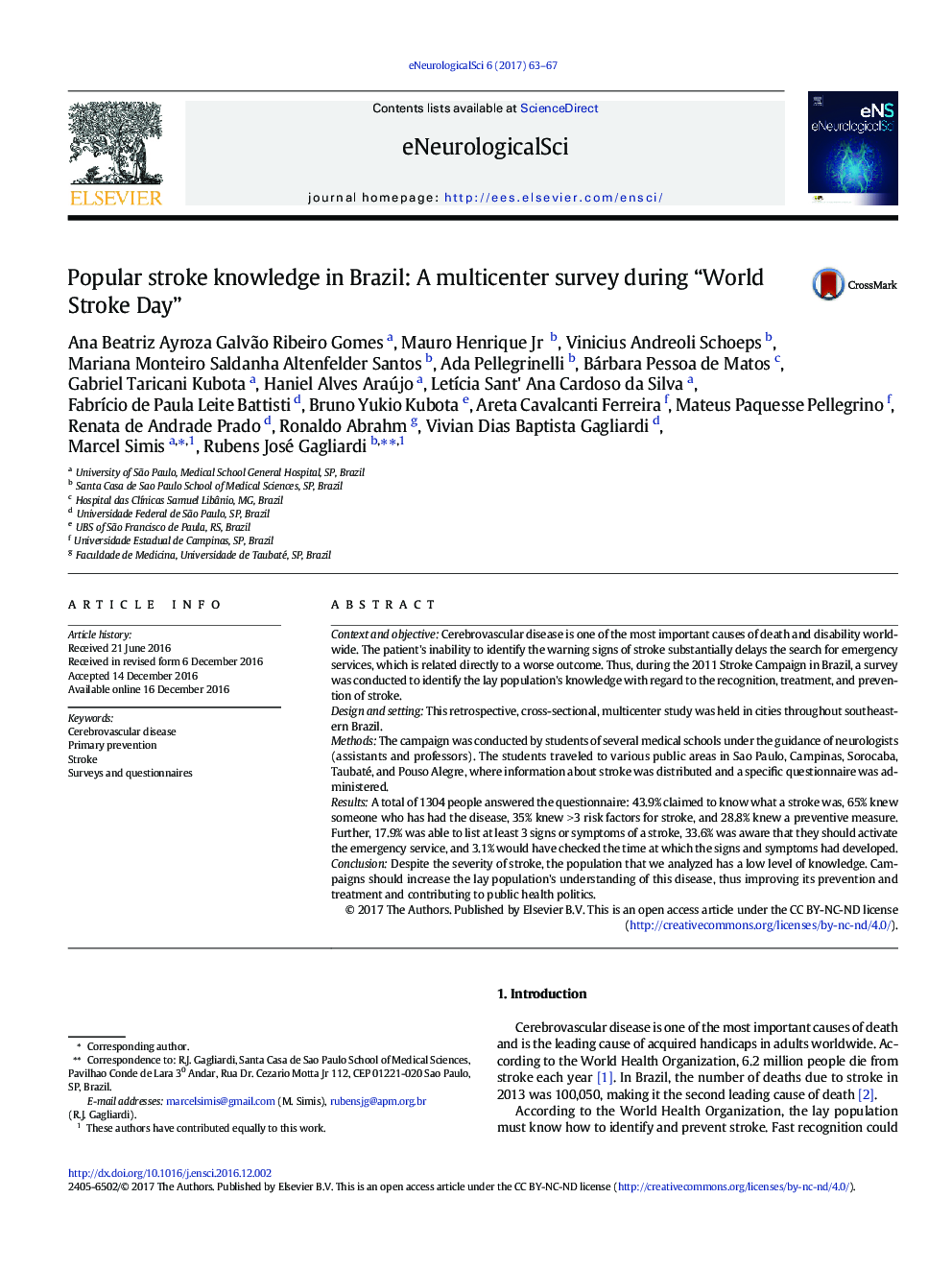| Article ID | Journal | Published Year | Pages | File Type |
|---|---|---|---|---|
| 6009696 | eNeurologicalSci | 2017 | 5 Pages |
â¢The delay on search for emergency services is related directly to a worse outcome.â¢It is a priority for patients to know the warning signs of stroke.â¢A survey was conducted to identify stroke knowledge in lay Brazilian population.â¢The analyzed population has a low level of knowledge about stroke.â¢Improve the stroke management and contributing to public health politics.
Context and objectiveCerebrovascular disease is one of the most important causes of death and disability worldwide. The patient's inability to identify the warning signs of stroke substantially delays the search for emergency services, which is related directly to a worse outcome. Thus, during the 2011 Stroke Campaign in Brazil, a survey was conducted to identify the lay population's knowledge with regard to the recognition, treatment, and prevention of stroke.Design and settingThis retrospective, cross-sectional, multicenter study was held in cities throughout southeastern Brazil.MethodsThe campaign was conducted by students of several medical schools under the guidance of neurologists (assistants and professors). The students traveled to various public areas in Sao Paulo, Campinas, Sorocaba, Taubaté, and Pouso Alegre, where information about stroke was distributed and a specific questionnaire was administered.ResultsA total of 1304 people answered the questionnaire: 43.9% claimed to know what a stroke was, 65% knew someone who has had the disease, 35% knew >Â 3 risk factors for stroke, and 28.8% knew a preventive measure. Further, 17.9% was able to list at least 3 signs or symptoms of a stroke, 33.6% was aware that they should activate the emergency service, and 3.1% would have checked the time at which the signs and symptoms had developed.ConclusionDespite the severity of stroke, the population that we analyzed has a low level of knowledge. Campaigns should increase the lay population's understanding of this disease, thus improving its prevention and treatment and contributing to public health politics.
